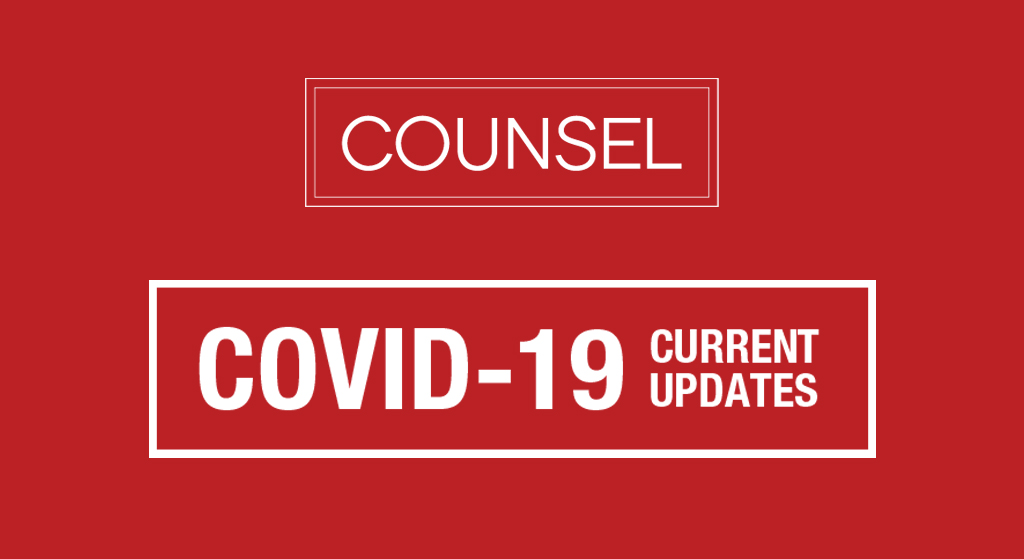Good Evening,
The government and opposition parties have reached an agreement on the new Canada Emergency Wage Subsidy allowing Bill C-14 to pass through the House of Commons unanimously this afternoon. The bill is now with the Senate, and Royal Assent is expected to take place later tonight.
Full text of Bill C-14 can be found here.
Here is what the Canadian Emergency Wage Subsidy (CEWS) does:
- Applied at a rate of 75% on the first $58,700 earned by employees – representing a benefit of up to $847 per week, per employee.
- The program will be in place for a 12-week period, from March 15 to June 6, 2020. Employers of all sizes and across all sectors of the economy would be eligible, with very few exceptions such as public sector entities.
- An eligible employer’s entitlement to this wage subsidy would be based on the salary or wages actually paid to employees.
- All employers would be expected to at least make best efforts to bring employees’ wages to their pre-crisis levels.
Bill C-14 changes a few major things from the original CEWS proposal. This includes:
- To measure their revenue loss, employers can compare their revenue of March, April and May 2020 to that of the same month of 2019 or, in order to provide more flexibility, to an average of their revenue earned in January and February 2020.
- For the month of March, Bill C-14 makes the CEWS more accessible than originally announced by reducing this 30% benchmark to 15%, in recognition of the fact that many businesses did not begin to be affected by the crisis until partway through the month.
- Flexibility in the measurement of revenue for the purpose of applying the revenue decline test to ensure more consistent access to the wage subsidy across impacted organizations. The bill also includes newly created businesses and high-growth companies, as well as non-profit organizations and registered charities.
- To provide certainty for employers, Bill C-14 says that once an employer is found eligible for a specific period, they would automatically qualify for the next period of the program. For example, an employer with a revenue drop of more than 15% in March would qualify for the first and second periods of the program, covering remuneration paid between March 15 and May 9. Similarly, an employer with a revenue drop of 30% in April would qualify for the second and third periods of the program, covering remuneration paid between May 10 to June 6.
- When measuring revenues of non-profit organizations and registered charities, Bill C-14 allows them to choose whether or not to include government assistance in revenues for the purpose of applying the revenue decline test. Once chosen, the same approach would have to be maintained by the organization throughout the program period.
- Employers will be allowed to measure revenues on either the basis of accrual accounting (as they are earned) or cash accounting (as they are received). Once chosen, the same accounting method as had been previously used would have to be used by the employer throughout the program period.
- Bill C-14 also mandates that the CEWS provide an additional amount to compensate employers for their contributions to the Canada Pension Plan, Employment Insurance, Quebec Pension Plan and Quebec Parental Insurance Plan paid in respect of eligible employees who are on leave with pay due to COVID-19.
It is also important to note that stiff penalties are in place for any eligible entities found to have artificially reduced their revenue in order to qualify for the subsidy or to have produced deceptive materials, ranging from a fine of 25% of the subsidy received, to up to 5 years in prison.
As with anything tax related, do not undertake any action on this without consulting your accountant.
—
Do you have questions about the CEWS, or anything to do with the federal response to the COVID crisis? Members of our federal team are working this weekend and are available to assist.
If you have any questions regarding the CEWS or other Federal government relief matters, please reach out to:
Ben Parsons 613-323-5226 (bparsons@counselpa.com)
Bridget Howe 613-797-8058 (bhowe@counselpa.com).

